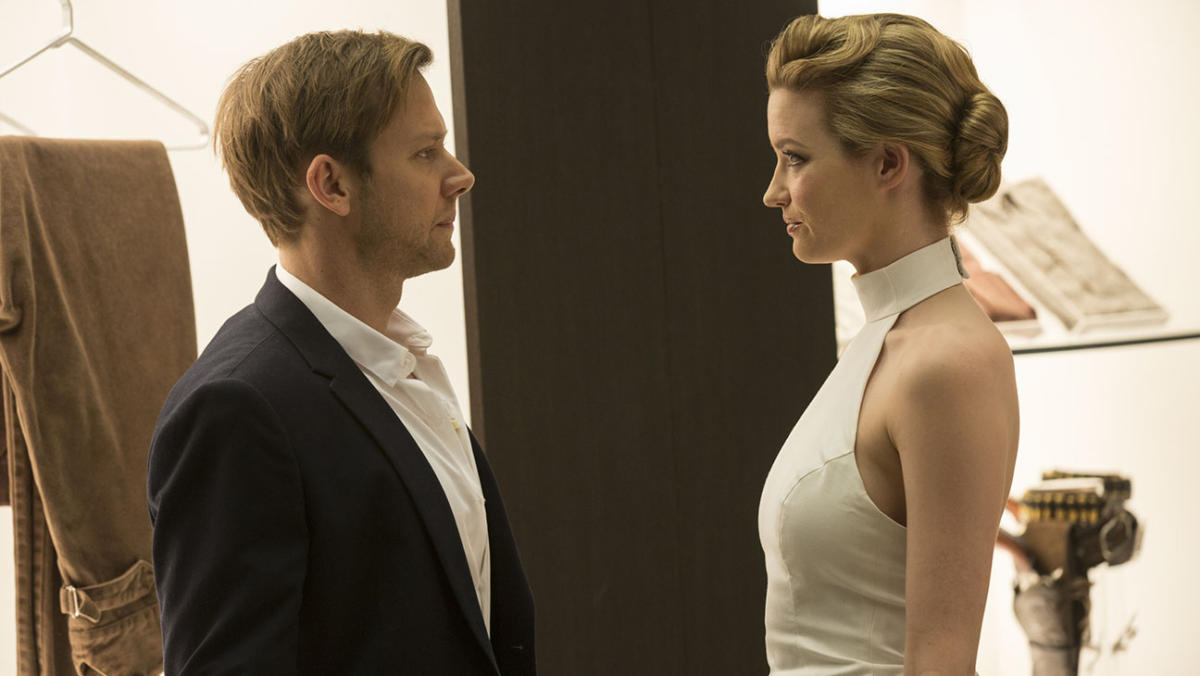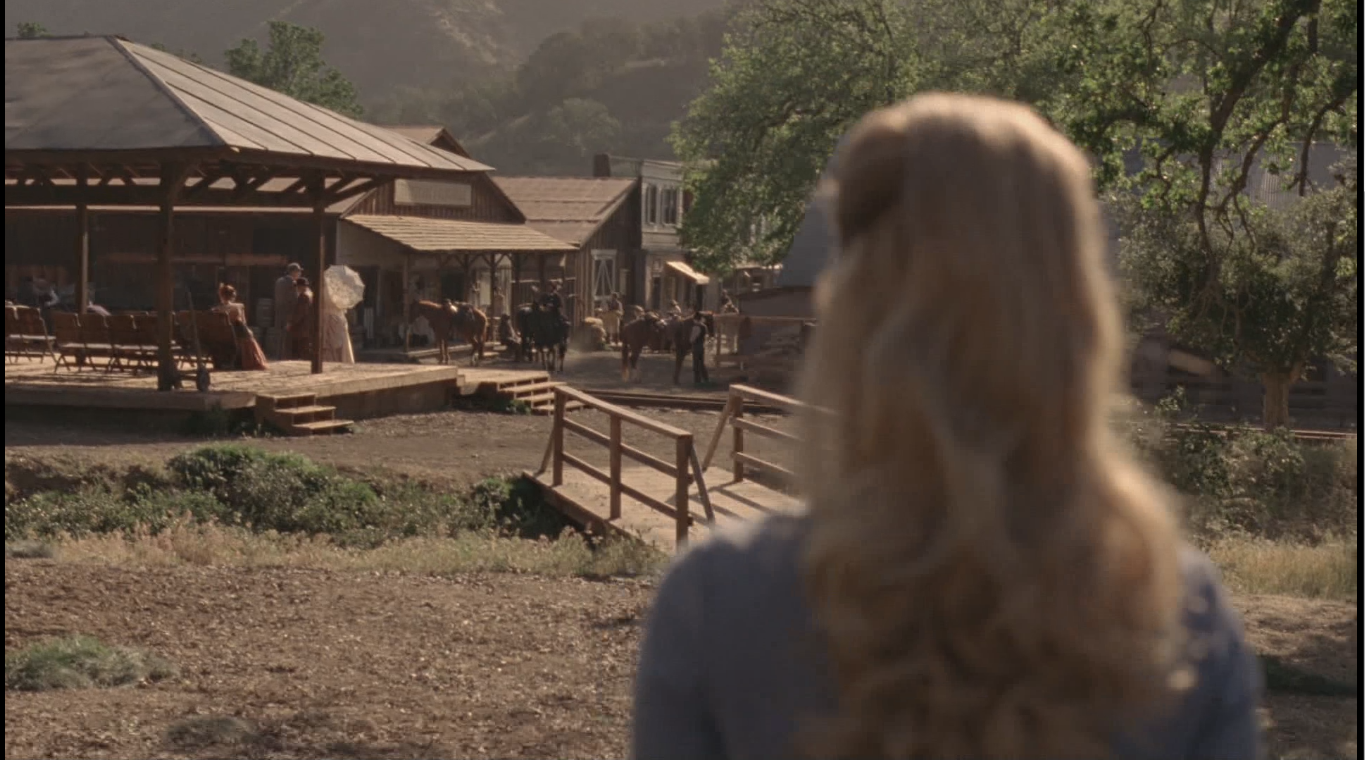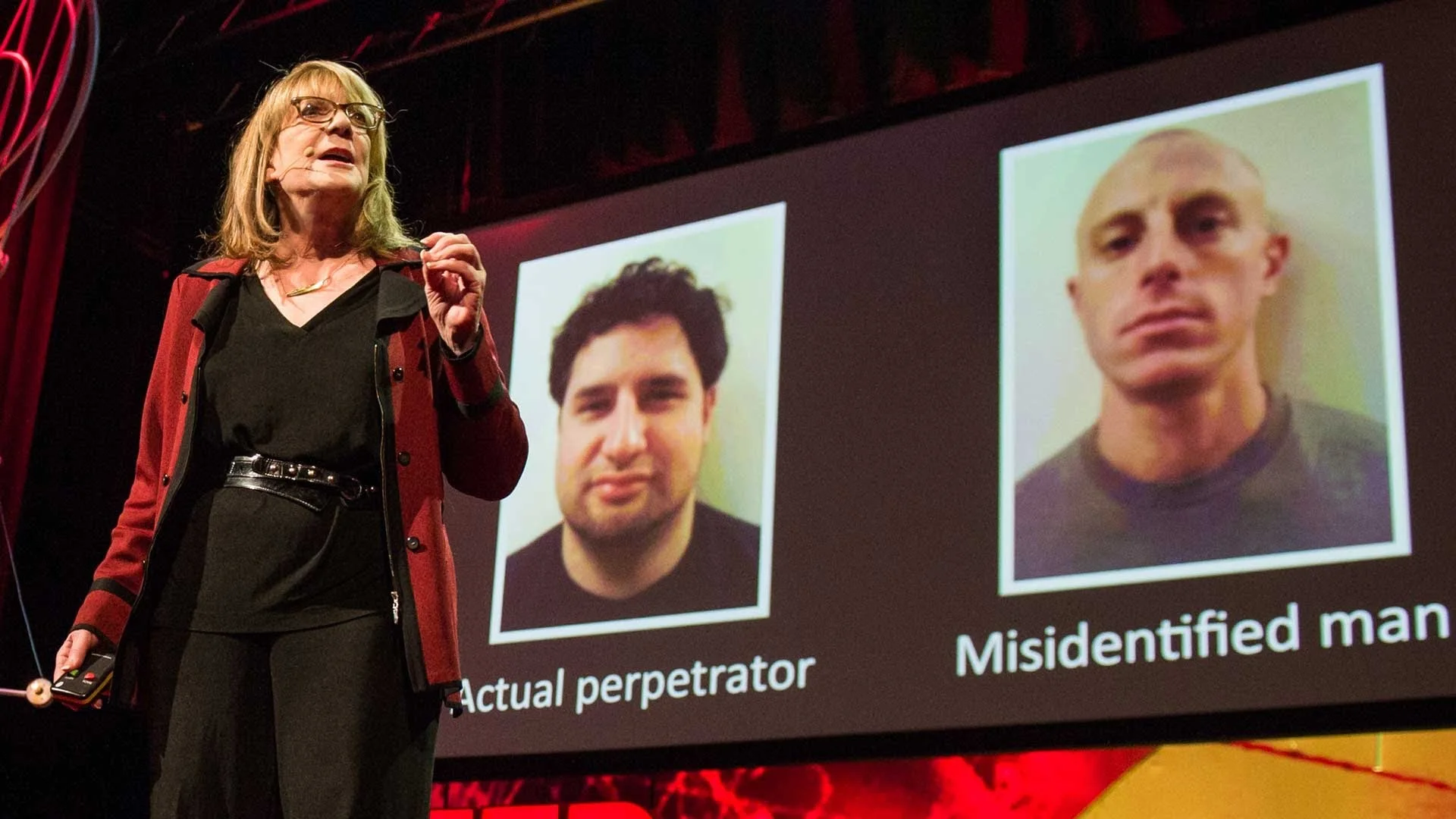Westworld Makes Me Remember That I Don't Want to Remember
Warning: This article contains spoilers for the first season of Westworld and episode three of the first season of Black Mirror.
The series finale of Westworld is approaching, and people cannot stop talking about their theories and ideas about how the show will end. I personally recorded a radio show over on Shanghai Drivetime FM89.9 last week (shameless plug inserted) where I mentioned my amazement at finding three separate podcasts in the Top 10 on podcasting app Overcast, all of which are dedicated to breaking down each episode of the Western-themed science-fiction television show. Some listeners felt that I was dismissing the nature of such things, but in fact the opposite is true: I made it the theme of the show BECAUSE of the fact that I find such topics fascinating, and talk about them a great deal myself.
For those unfamiliar, Westworld is set in a theme park of the future where robots - named 'hosts' - are programmed on story arcs and act them out in the presence of people who visit the park from the outside - called 'guests'. The guests can do just about anything they like while in the park, and the majority of them seem to spend their time killing or having sex with the hosts that they encounter.
One of the main 'guests', on the left, asks the girl on the right whether or not she is a host, to which she replies, "If you can't tell, does it matter?"
The catalyst of last week's radio show was the big reveal in Episode 7 of Westworld that one of the major characters - Bernard - has been a host (not a human, as we were led to believe) all along. The twist is that he himself does not know, and amongst fans it raised issues surrounding the nature of reality and self-perception in general. And for me, that is why I enjoy discussing the plot details of Westworld more than I would of any other show - it has a number of fascinating implications for real life. As a budding futurologist, I find so many of the questions raised in Westworld likely to be ones that will need to be answered for real, sometime in the coming decades. For example:
will we ever program a robot to achieve true consciousness?
for that matter, what even is consciousness?
is it moral to kill a robot, even if they, for all intents and purposes, look exactly like a human?
if robots could achieve a level of sentience, would enslaving them necessarily be any less unethical than enslaving actual human beings?
does sex with a robot count as cheating?
does falling in love with a robot count as cheating?
And so on, and so on, ad infinitum.
Fan theories suggest that Dolores is actually remembering this town from the past, but it seems to her as if it's here in the present.
But I am far from being the only one thinking about such questions. Countless videos and articles, in addition to numerous podcasts, are dedicated to discussing the details of the show. One YouTube channel I have been enjoying is HaxDogma, and I thought that one of the points raised in their November 26 video, entitled Dolores Flashback Theory, was very interesting. Hax was discussing one of the most common theories surrounding Westworld; that the story is actually multiple time periods intertwined, and that the main robotic character, Dolores, is critical to understanding which time period of the story is which. If this theory holds, it seems that she is re-living parts of her past in vivid detail, sparked by seeing people and experiencing things that she has seen and experienced before. The commentary says:
Imagine you, personally, walking down the road. You see some familiar object, and then you're suddenly teleported back to a horrifying moment in your life, and then suddenly transported back.
This is quite a sobering thought, and thankfully one that human beings in real life don't have to worry about...yet. In the show, one of the technicians (the engineers who repair the hosts) remarks that when humans remember things, the memories are a little fuzzy and 'hazy' with many of the details omitted. But the hosts in Westworld recall memories exactly as they happened, in the same way that a modern-day computer loads a document that you saved exactly as it is, not a rough approximation of what you wrote (thank goodness).
Liam accessing his memories in The Entire History of You.
My rambling mind heard this on the video and recalled an episode of another sci-fi show - Black Mirror. In the third episode of the first series, entitled The Entire History of You (1), we see a world where everyone has an implant placed behind their ear (called a 'grain') that records everything they see, hear, or do, and allows them to play it back at any time. Our main protagonist, Liam, is driven crazy by a belief that his wife has cheated on him in the past, and thanks to his grain is able to access the information he needs to confirm his theory. Ultimately this drives away his wife and young child (not biologically his, as he also discovers), and he is left alone. The audience is left wondering whether he would have been better off not knowing - in short, is ignorance truly bliss?
So what does all this have to do with anything? Well, to me, it adds yet another question to the already huge list of questions asked by Westworld - would we want to be able to remember things like the hosts do? If such an ability could be implanted into humans, say by the use of a Black Mirror grain-type device, would we want it? Should we want it?
Elizabeth Loftus questioning the true ability of humans to remember information.
Memory is a critical part of our civilization and our humanity. It's also a very troubling part in many ways. Famed psychologist Elizabeth Loftus has fought a decades-long battle against parts of the legal system, arguing that memories are incredibly unreliable and casting huge doubts on the use of witness testimony in court cases (2). This argument could be put to bed with the adoption of something like the grain featured in Black Mirror - 7 billion people effectively transformed into miniature CCTV cameras whose memories could be accessed to prove or disprove just about anything. But before we even get to the moral considerations of such a system, consider the effect a Dolores-style episode might have on a human brain and on the human psyche. In short, it would likely be incredibly traumatic, and a distraction from whatever you were doing in that moment.
Like with many of the issues raised in Westworld regarding the hosts, this is another one that could easily apply to future humans. So next time you're complaining about how bad your memory is, try to recall this article and think about whether or not this is really an ability that you would like to improve, even if the technology were ready. Because it might not be long until you have to answer this question for real.
Extra Stuff
The Entire History of You was so popular with Hollywood actor Robert Downey Jr, that his production company bought the rights to the script, so expect a big screen adaptation sometime in the future. Bet you wish you'd never read the synopsis now...
Ever heard of the case of the psychologist who 'implanted' false memories into people, making them 'remember' getting lost in a shopping mall as children, even though it didn't happen? If so, then you've heard of Elizabeth Loftus's remarkable work. Read the study here.
If you liked this article, why not share it to social media instead of trying to remember the URL (shameless plug No.2)? I'd really appreciate it!






